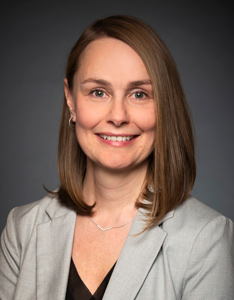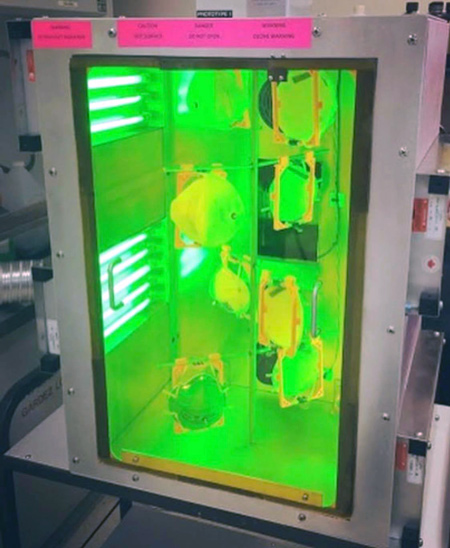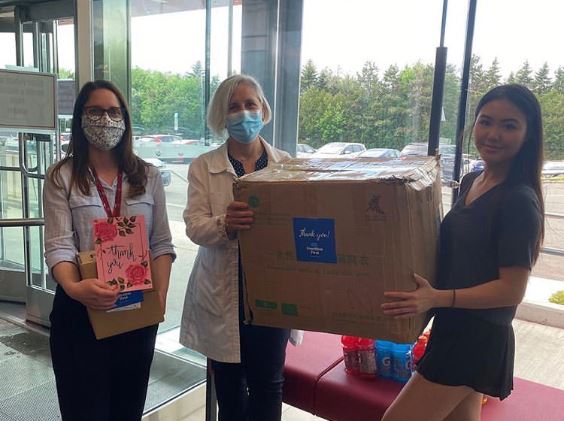Our editorial team is working from home to bring you a series of articles about the coronavirus. In this article, the fourth and final issue in our series, we acknowledge and thank our community for their support and donations of hand-sewn masks during the pandemic.
Hospitals around the world are adapting to COVID-19. In the nation’s capital, the community is stepping up to help.
In April, the University of Ottawa Heart Institute (UOHI) put out a call on its website and on social media asking its surrounding community for donations of hand-sewn cloth masks.

“We provide a cloth mask to all our patients upon their discharge from the hospital,” said Bonnie Bowes, vice-president of quality, privacy and health information, and the UOHI’s chief nursing officer. “It’s essential that all our out-patients have the ability to protect themselves at home, in transit to and from their scheduled appointments, and while in public areas where physical distancing may not always be possible. This protection is especially important for cardiac patients with acute illness.”
Bowes said UOHI staff donning full personal protective equipment collected donations outside the Heart Institute. All masks were then treated in a UOHI laboratory. They were cleaned using an innovative machine that combines temperature and light to effectively sterilize the donated masks. Donations were then individually packaged in a clean bag and distributed to the out-patient units.
To date, and by Bowes’ estimate, the Heart Institute has received thousands of donated masks from do-good citizens, former patients, family members of current and former staff, Heart Institute volunteers, and Ottawa-based sewing and quilting groups. Tweets like this one are lifting the spirits (and raising the mask count) of frontline workers.
Shoutout to my mom! When she heard @HeartInstitute needed homemade masks for patients, she decided to sew over 100 to donate! #MyMomIstheBest pic.twitter.com/a5VbuqxKPL
— Anh-Thu Dang (@anhthudang28) May 8, 2020
Others are stepping up, too, providing much-appreciated support to the UOHI in other ways. The UOHI’s Patient Alumni Association, for example, arranged for each essential on-site UOHI staff member to receive a gift card for Vittle, a meal preparation service serving the Ottawa area.
The list doesn’t stop there. Several local restaurants – and one group of Ottawa-based medical students – provided complimentary meals for the area’s frontline workers. Even children sent in their positive messages of affirmation to the UOHI frontline (by way of their working parents).
“The response from our community has been wonderful,” said Bowes. “We are all so grateful to receive the support from our community in this unprecedented time. We really didn’t expect such a response. We have enough masks to distribute to all our patients upon discharge, and even some of our staff! Thank you to our community for supporting the Heart Institute!”
As the Ontario government moves forward with its plans to gradually reopen the economy, more masks will be needed. Bowes and the Heart Institute are encouraging the community to continue donating hand-sewn masks if they have the ability, materials and skillset to do so.
We are all so grateful to receive the support from our community in this unprecedented time. We really didn’t expect such a response.
- Bonnie Bowes, UOHI
Donations of hand-sewn masks can be dropped off at the Heart Institute during regular hours, from 6 a.m. to 9 p.m. For mask-making instructions and more information, please read Making Homemade Masks for University of Ottawa Heart Institute Patients (PDF).
COVID-19 resources
On its website, the University of Ottawa Heart Institute is cautioning all who may experience heart-related symptoms not to delay seeking emergency medical assistance. A delay in seeking care could have a lasting impact on the outcome of your treatment.
Download and share this infographic (PDF) developed by the UOHI, and visit this website for helpful COVID-19 updates and resources, tips to keep safe and healthy during the pandemic, and for answers to your frequently asked questions about the virus’s implications on your heart health.



